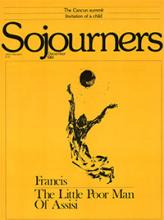It was fitting that the first global dialogue between leaders of rich and poor countries would be set in Cancun, Mexico. Amidst scenic Mayan ruins, reminiscent of Mexico's lost, resplendent past, the 22 leaders (eight from the industrialized world and 14 from developing countries) gathered on this exclusive resort island, overlooking the crystal blue waters of the Gulf of Mexico. In the nearby shantytown of Cancun City, however, the abject poverty of the native Indians bears symbolic witness to Mexico's present and the impoverished lot of the entire underdeveloped world today. But if the economic contrasts of Cancun's surroundings helped to dramatize the purpose of the talks, they also served as a troublesome reminder of all that was left undone when the accords ended.
To be sure, the talks were neither intended nor designed to complete any specific agreements between the countries involved. Rather, the goal was to move beyond rhetorical proposals and ideological jockeying to create a congenial political atmosphere from which future, more substantive talks could emerge. But even this unassuming end was only partially fulfilled. A member of the Brazilian delegation summed up the results as positively as he could: "Our expectations were so modest that the disappointment cannot be too great." If Cancun provided an important, though tiny, first step forward along the pathway of global negotiations, it also highlighted a substantial rift between the rich and poor, foreshadowing a massive roadblock not very far ahead.
Read the Full Article

